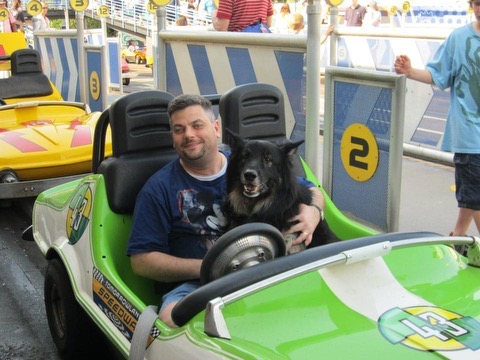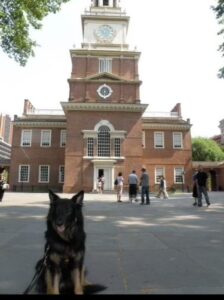My name is Becca Lannon and I am a volunteer for The Guide Dog Foundation, a non-profit organization whose mission is to improve the quality of life for people who are blind, have low vision, or have other disabilities. I found my passion, for all things dogs, and training, through a club at University of Maryland College Park that volunteers for this incredible organization.
For most people, walking anywhere, stopping at the right time at cross walks, navigating through crowds, and even opening doors are mundane tasks. For people who are visually impaired, these daily tasks can be arduous. A quick walk across the street to the grocery store could potentially mean immense anxiety and effort for a visually impaired person.
Guide dogs are more than just a companion for their owners; They mean freedom and independence. The bond formed between a guide dog and their handler is unlike anything else.
Guide Dogs and their owners must wholeheartedly trust each other and be able to communicate through different facets. Being able to potentially play a part in someone’s independence has been life changing for me. As a volunteer, I raise puppies and build skills that shape them into being a successful working dog.
Our guide dogs learn commands such as sit/down/stand/stay, as well as more specific cues like “Under” (which allows the dog to stay tucked under the handler’s leg while sitting so they stay safe and out of the way). They also learn positional cues like “heel” which teaches the dog to stay focused and stay next to their handler in public.
Once in formal training, guide dogs learn specific skills their handler may need, like curb recognition, bus navigation, target pressing handicap buttons, before being trained and placed with their chosen handler.
Craig Borne, my partner’s father, made the decision to get a service dog (Ollie) in 2007 so he was able to feel confident and safe navigating the metro system in Washington DC. To him, a service dog meant independence and comfortability in busy public spaces. They traveled to Disney, the Bahamas, rode cruises, and took many flights together. Handlers are evaluated for their walking pace and lifestyle so they may be placed with the best fitting dog for them. Through every step of this process, Craig notes that he was given preference of breed and had many opportunities to find the best fit for him. He was matched with Ollie and given a gift of independence and an unmatched bond.
This process is difficult and requires a dog with passion, determination, and a drive to work. If a dog graduates with a handler, it is truly what they were born to do. Working teams in public should be met with space and respect.
The dog I had the privilege to raise during my college years was released and adopted by myself. We spend every Wednesday educating people on the way future guide dogs are trained and how to interact with working teams.
Check out my guest entries on @BestFriendsFureverVIP on Instagram for more knowledge on Guide dogs and the paths they travel to be a successful and lifechanging addition to a visually impaired handler’s life.


